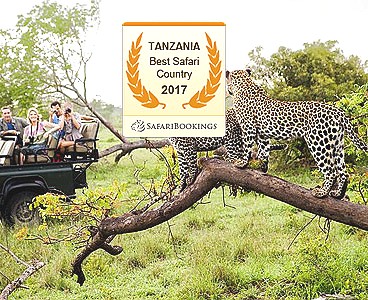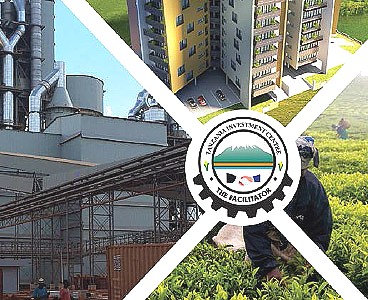The United Republic of Tanzania is located in Eastern Africa between longitude 29o and 41o East, Latitude 1o and 12o South.
The United Republic of Tanzania was formed out of the union of two sovereign states namely Tanganyika and Zanzibar. Tanganyika became a sovereign state on 9th December 1961 and became a Republic the following year. Zanzibar became independent on 10th December 1963 and the People's Republic of Zanzibar was established after the revolution of 12th January 1964. The two sovereign republics formed the United Republic of Tanzania on 26th April 1964.
Tanzania is the biggest (land area) among the East African countries. Tanzania has a spectacular landscape of mainly three physiographic regions namely the Islands together with the coastal plains to the East; the inland saucer-shaped plateau; and the highlands. The Great Rift Valley that runs from Northeast of Africa through central Tanzania is another landmark that adds to the scenic view of the country. The country has the largest concentration of wild animals. It also has pristine sandy beaches and Africa’s highest and snow-capped mountain, Mt. Kilimanjaro.
Tanzania is home to the world-famous National Parks and Game Reserves such as Ngorongoro Crater, Selous, Serengeti, Gombe Stream, Tarangire, Lake Manyara, Mikumi, Ruaha, Saadani, Udzungwa Mountains, Ruaha, Katavi, Rubondo etc.
Dodoma is the capital city and Dar es Salaam is the commercial capital and major seaport for Tanzania Mainland and it serves neighbouring land-locked countries of Malawi, Zambia, Burundi, Rwanda, and Uganda, as well as Eastern DRC. Other sea ports include Zanzibar, Tanga, and Mtwara. Because of its geographical advantage, Dar es Salaam Port presents itself as the gateway into East and Central Africa. Furthermore, this renders Tanzania as a logical investment destination for investors.
Since attaining political independence in 1961, Tanzania has held without fail Presidential and Parliamentary Elections (general elections) after every 5-year period.
Economic Policy Stance: The Government of Tanzania under the leadership of HE President Samia Suluhu Hassan is committed to the pursuit of sound, consistent and predictable macro-economic policies with low inflation.
One of the key areas of policy focus is promotion of sustained and shared economic growth. The 6th Phase Government is committed to pursuing pro-investment and pro-growth policies. Moreover, the Government is committed to promotion of public-private sector partnership and in this regard, the public and private sectors meet under the umbrella of the Tanzania National Business Council (TNBC), a forum of policy dialogue and consultation between the public and private sectors. Academia, research institutions, NGOs, CSOs and others, are also engaged to promote wider participation in policy discussions.
Tanzania has a vibrant national consultative process that cements national unity and social cohesiveness, which ultimately contribute to promoting peace, security and stability, attributes that are important for a conducive investment climate. With such attributes, coupled with its vast natural resources base and geographical advantage, a large domestic market and a labour force, Tanzania is an ideal investment destination. We welcome Investors to make their businesses a success in the most lucrative investment on this part of the world.



